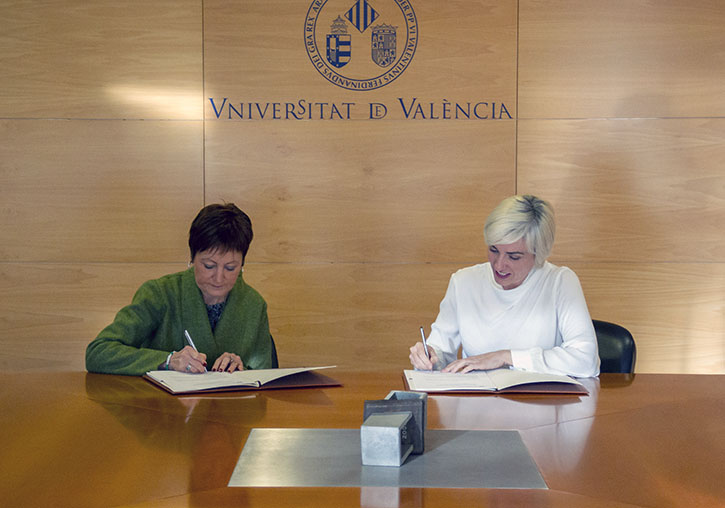
Arthex Biotech, a biotechnology company founded in the ERI Biotecmed of the Universitat de València and recently recognised as a spin-off of the academic institution, has recently be shared by a private investment fund for the development of a treatment against the myotonic dystrophy type 1, a genetic neuromuscular disease that affects more than 3,000 people in Spain. The spin-off will commercialize a patent product of the university R&D.
The myotonic dystrophy (MD) is a hereditary muscular disorder mainly characterised by the loss of muscle mass (dystrophy) and the inability to relax the muscles once tightened (myotonia.) The disease is slowly progressive, highly debilitating and life-threatening, considering that it tends to cause damages associated to the heart and the pulmonary function. Nowadays, the disease has no cure on the market.
The Translational Genomics research group of the Universitat de València validated slightly over a year ago a new therapeutic target for the MD and developed molecules that allow the recovery of the symptoms of the disorder. The invention was patented and the proof of concept of de disease, in an animal model, was published in the journal Nature Communications.
Arthex Biotech, located in the Science Park of the Universitat de València and recognised last year as a spin-off of the academic institution, has been entitled to exploit this patent. The investment fund Invivo Ventures FCR has got a share of the spin-off with 1.5 million euros, as a kind of seed capital, to perform the development of a new therapy based on oligonucleotides and meant to cope with the complex symptomatology of the myotonic dystrophy. “This is a RNA-targeted therapy that consists in increasing the MCNL protein levels in patients, whose dysfunction has been related to the most severe symptoms of people affected by myotonic dystrophy,” says Beatriz Llamusí. “The treatment allows us to modulate the levels of endogenous MBNL protein without permanently modifying the patient’s genome,” she specifies.
The recent financial injection by Invivo Ventures will serve to optimize the candidate molecule, to perform regulatory analysis and to reach human clinical studies in 2022. “RNA-targeted therapies can have a transformative impact on the treatment of rare diseases, an area of great unmet medical needs,” says Luis Pareras (Invivo Capital); “if it succeeds, the molecule developed by Arthex will become the first disease-modifying drug for myotonic dystrophy type 1, the most common form of muscular dystrophy in adults,” he concludes.
“Business initiatives that give continuity to the results of research are needed, so that they end up reverting in the society,” says Rubén Artero, Professor of Genetics in the Universitat de València and co-founder of Arthex. “When research results can leave the laboratory, not only can appear private investment for their development, but also this transfer of knowledge offer scientists new challenges. In our case, to carry out this project we will have to perform certain preclinical studies that are not usual in the dynamics of our work group, which provide us with new perspectives and which, without a doubt, enrich the research,” explains Artero.
Once Arthex Biotech concludes the first clinical phase in humans, the results will have to be transferred to the pharmaceutical industry for its completion and commercialisation.
Links:

 rectorado 3.jpg)









